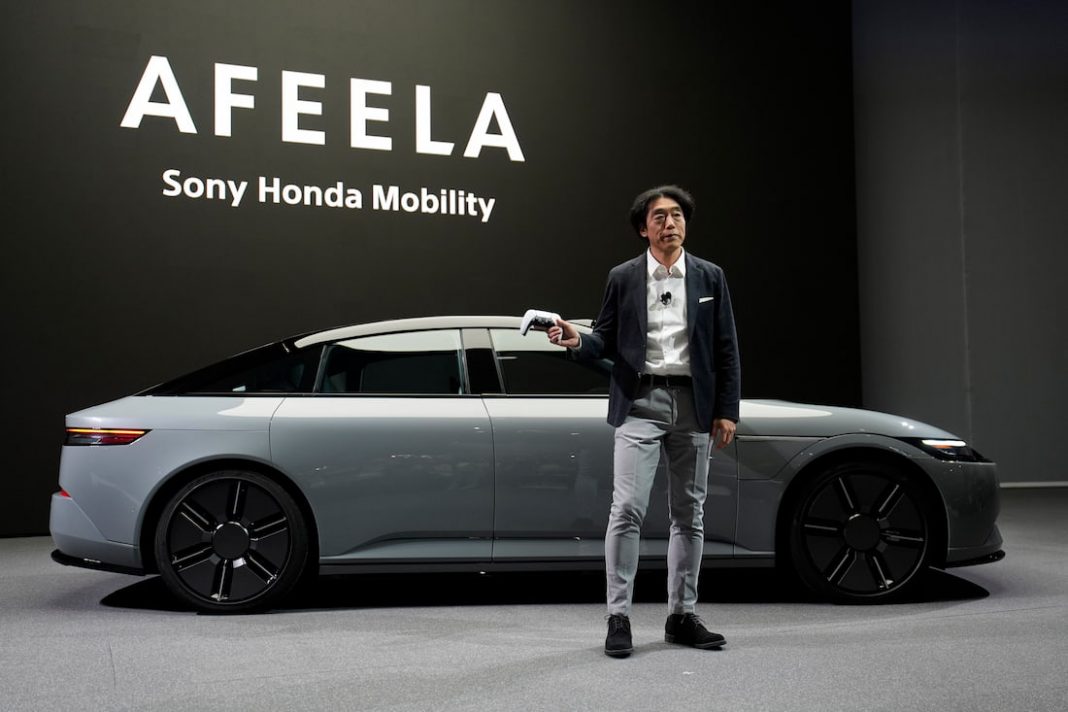Vehicles driven using game controllers, delivery vans you can turn into taxis, and cars with ChatGPT on the dashboard have been revealed at the Consumer Electronics Show in Las Vegas.
The annual innovation summit kicked off on Tuesday, Australian time, and saw some of the world’s biggest brands announce unexpected plans for future technology.
Sony captured attention by driving a vehicle on to the stage at its event, piloted by a man using a PlayStation 5 controller.
The Afeela prototype electric vehicle was created by Sony and Honda, and powered with Microsoft’s artificial intelligence technology.
Sony Honda Mobility president Izumi Kawanishi said the electric car would be packed with sensors that could be used with AI to boost driving safety and create 3D maps.
But the car, he said, would still be driven using a steering wheel.
“This demo is for the purpose of the showcase only,” he said.
“However we believe software can define new functions.”
Microsoft data, AI and digital applications vice-president Jessica Hawk said its AI technology would be used to power Afeela vehicles, both to help the cars identify obstacles and to customise the experience for drivers.
“We’ve been able to talk to our cars through voice command for quite some time now so what’s interesting and promising today is that with the introduction of generative AI and cloud-scale computing, there’s unlimited potential to amplify creativity, increase personalisation, and transform the vehicle experience,” she said.
“We’re going from buttons on a screen to conversation and multi-modal (controls).”
German automaker Volkswagen also revealed plans to add ChatGPT to its vehicles at the Las Vegas show, in a change that would give new and existing models access to the generative AI technology.
The chatbot will be added to Volkswagen’s own in-car voice assistant, IDA, in vehicles from its ID, Tiguan, Passat and Golf ranges.
Volkswagen technical development board member Kai Grünitz said ChatGPT would be added to cars’ software in an automatic update later this year and would help to answer general knowledge questions and queries about the vehicle, and respond using natural language.
“We are now the first volume manufacturer to make this innovative technology a standard feature in vehicles from the compact segment upwards,” he said.
Kia used CES to unveil plans to create modular, customisable electric vehicles that could be transformed from “a taxi during the day to a delivery van at night”.
The South Korean firm called the technology Platform Beyond Vehicle, and announced it would be used to create interchangeable parts that could be connected to a vehicle base with electromagnetic and mechanical coupling.
Development on the technology is expected to begin in 2025 and the first vehicle to feature the technology, a van called the PV5, will allow users to extend its roof or change the rear of the vehicle to turn it into a ute.
Honda is also expected to unveil a new range of electric vehicles at CES on Wednesday, after announcing plans to sell only electric and hydrogen fuel-cell vehicles by 2040.



